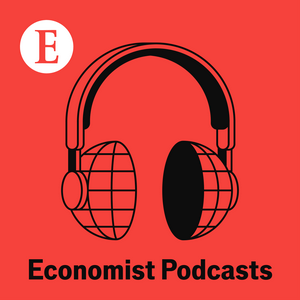Just one generation after they gained independence, people in the Baltic States are watching the threat from the Kremlin creep closer and closer. In Lithuania, the government is preparing the population to resist an invasion.
On “The Weekend Intelligence” Katie Bryant travels to Vilnius to ask how facing up to threat is changing the nation.
Topics covered:
Lithuania
Civil defence
Disinformation
Listen to what matters most, from global politics and business to science and technology—Subscribe to Economist Podcasts+
For more information about how to access Economist Podcasts+, please visit our FAQs page or watch our video explaining how to link your account.
Music by bluedot Sessions and Epidemic Sound.
This podcast transcript is generated by third-party AI. It has not been reviewed prior to publication. We make no representations or warranties in relation to the transcript, its accuracy or its completeness, and we disclaim all liability regarding its receipt, content and use. If you have any concerns about the transcript, please email us at
[email protected].
Read more about how we are using AI.
Hosted on Acast. See acast.com/privacy for more information.


